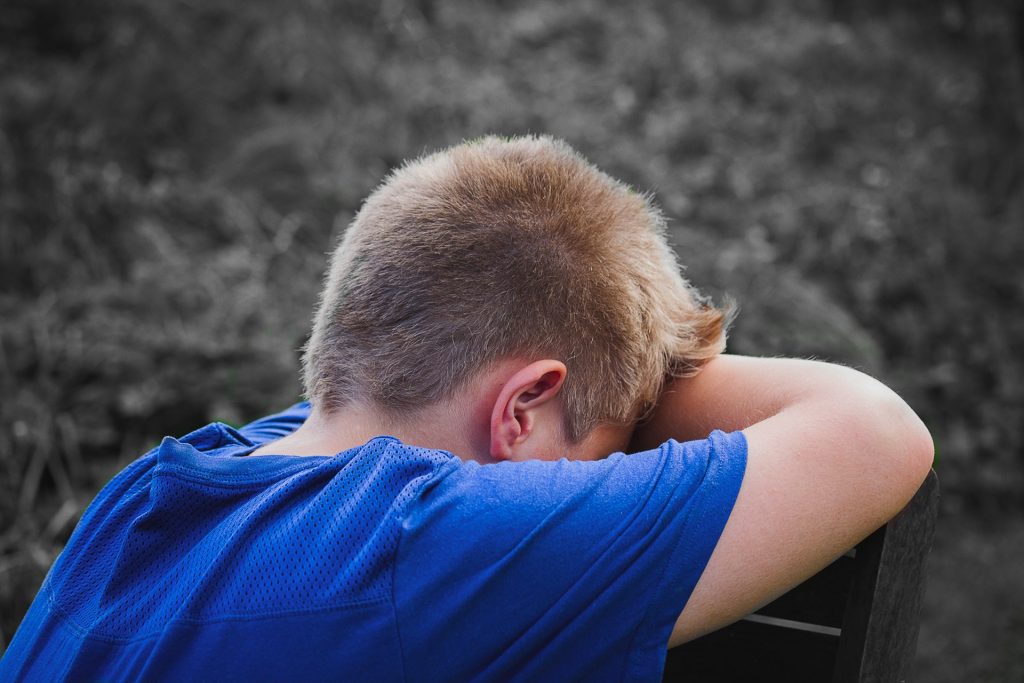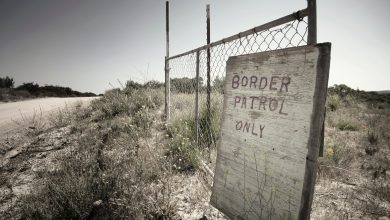Child Endangerment and Everything That Encompasses It

Child endangerment is a crime that occurs when an adult, deliberately or negligently, exposes a child to situations that may cause physical harm, mental and emotional trauma, or death. Many states have varying definitions of child endangerment, with some states classifying child abuse and neglect as part of child endangerment. However, the generally accepted explanation is that as long as an adult does anything intentionally or otherwise that puts a child in danger, the law will punish them for child endangerment.
Some examples of child endangerment include:
- Producing illegal drugs or conducting drug transactions in front of a child
- Failing to properly secure a firearm in an environment where a child is present
- Giving alcohol to a child
- Leaving a child in alone in a hot car or an unsafe environment
- Having sexual activity in the presence of a child
While it’s clear that the law will punish a case of child endangerment, it’s essential to note that not every action by an adult will be construed as child endangerment, especially if the law considers the action as a minor mistake on the part of the adult. For example, an adult who hurriedly dashes to work, leaving a child at home alone, may receive a pardon for child endangerment from a judge.
What Is a DUI Child Endangerment?
A DUI child endangerment occurs when an adult drives with a child in the car while under the influence. Punishments for DUI child endangerment charges are usually severe. In the eyes of the law, the driver commits two separate crimes: driving under the influence and child endangerment, hence the severe punishment. When pronouncing judgment, the court will first issue a sentence for child endangerment. Therefore, it may lead to a jail term and additional penalties for driving under the influence.
Punishment for Child Endangerment
The punishment for a child endangerment charge depends on the severity of the injury or harm that the child suffered. Before pronouncing judgment, the court will investigate whether an adult’s action puts a child in a potentially dangerous situation. They’ll also consider whether the child indeed suffered bodily pain, injury, or worse, death. Simple cases of child endangerment will attract a misdemeanor charge. But severe cases will incur penalties proportionate with a felony charge.
Also, the degree of punishment for a misdemeanor or felony charge for child endangerment varies from state to state. However, going by general practice, most states will issue a jail sentence between six months to two years for a misdemeanor charge. For a felony charge, the sentence can be anything between two to twenty years. Also, a simple misdemeanor charge may escalate to a felony charge if the parent has a repeated criminal history of child endangerment.

Child Endangerment, Child Abuse, and Neglect
Federal laws classify child endangerment under the crime of child abuse and neglect. It’s defined as the deliberate action or negligence of an adult, parent, or guardian resulting in the death, injury, sexual abuse, or exploitation of a child. It’s also defined as any action or inaction of an adult that causes potential threat or harm to a child.
For a firm grasp of what child endangerment encompasses, it’s important to understand all the various forms of child abuse.
What Is Child Abuse?
Child abuse, otherwise known as child maltreatment, can be defined as the infliction of pain or anything that causes trauma to a child. Abuse can occur in many forms and can be physical, sexual, or psychological. Statistics show that children suffer a great deal more of abuse than is reported. In most cases of sexual abuse, the abusers are closely related to the victims.
Physical Abuse
Physical abuse involves the intentional infliction of pain or injury upon a child. Abusers may harm the child by beating, kicking, biting, punching, or hitting with a weapon. In most cases, the aftermath of abuse often leaves the child with broken bones, bruises, burns, and internal bleeding. Adults who abuse children do so out of a need to correct what they feel is abnormal behavior. This sort of abusive behavior is mostly due to the adult’s failure to understand the dynamics of relating to and bringing up a child. Other times, abusers may hit a child in a bid to vent anger or frustration. This behavior is owing to poor anger management skills.
Sexual Abuse
This type of abuse occurs when an adult engages in any form of direct or indirect sexual activity with a child below the age of legal consent. Sexual abuse doesn’t necessarily have to involve sexual intercourse with a child, although this occurs more often than not. Any act where an adult derives sexual pleasure with a child constitutes sexual abuse.
Sexual abuse occurs when an adult does any of the following:
- Touching the sensitive parts of a child such as genitals, buttocks, or breasts, whether the child is dressed or undressed
- Performs oral or anal sex with a child
- Looks at a child’s genitals while the child is undressing
- Exposes their genitals to a child
- Takes pictures or records a video of a naked child for pornographic purposes
Psychological Abuse
Psychological abuse occurs when an adult exhibits behavior that threatens the mental and emotional well-being of a child. When an adult threatens, terrorizes, or says hurtful and destructive words that erode a child’s self-esteem and self-worth, such an adult is guilty of psychological abuse.
There are certain tell-tale signs that a child is suffering from abuse or neglect. Some of the signs that a child may exhibit due to abuse include:
- Unexplained withdrawal or passivity
- Sudden decline in academic performance
- Heightened anxiety or apprehension
- Shows visible discomfort around a particular adult, who, in most cases, is usually the abuser
- Erratic eating habits and sleeping pattern
- Takes long absence from school
What Is Child Neglect?
Neglect occurs when an adult fails to provide the requirements for a child’s all-round physical, mental, and psychological growth and development. There are four main types of neglect which include:
Physical Neglect
When an adult fails to provide the necessities of life, such as food, clothing, and shelter to a child, the child suffers from physical neglect.
Medical Neglect
A child suffers from medical neglect when an adult fails to provide medical treatment to a sick child. It could also occur when a person deliberately withholds health care from a child battling with life-threatening conditions.
Educational Neglect
When an adult doesn’t provide the necessary resources for a child to receive a quality education, that adult is guilty of child neglect.
Emotional Neglect
The failure of an adult to support a child mentally and emotionally or to provide psychological care for a child is known as emotional neglect.
It’s important to note that in cases where a parent or caregiver cannot provide for the child, such an adult or caregiver may not be punished for child neglect. Also, there are laws in place that prevent parents from being charged with medical negligence if they refuse medical treatments for their child based on religious beliefs.
What Is Child Abandonment?
Child abandonment is a form of child neglect that occurs when a parent or guardian willfully and deliberately fails to provide a child with physical, financial, and emotional support or deliberately leaves a child in a place without the intention to return for such a child. The law will charge a parent or guardian with child abandonment if they do any of the following:
- Leave a child by the road or at the doorstep
- Abandon a baby in a dumpster or garage
- Leave a child at home for such a long time that the child faces potential harm or suffers some injury due to lack of supervision
- Leave a child in another person’s custody without making provision for the child’s support and well-being
- Fail to call or visit a child for over six months, causing the child to feel neglected
Safe Haven Laws and Infant Abandonment
The entire states in the US have ratified the Safe Haven laws as a solution to the increasing rate of child abandonment cases. Although Safe Haven laws vary by state, they generally provide parents with legal avenues to leave babies with authorities. Parents who feel they cannot afford to take care of a baby can now surrender the baby to authorities and avoid the risk of facing child abandonment charges. Places such as hospitals, firehouses, or government buildings are government-designated safe havens.
Many states do not require that a parent disclose their identity or that of the baby’s. However, most states declare that a parent who gives up a baby forfeit their parental rights permanently. In contrast, some states allow a specific time during which reclamation of the child is possible.

Is Spanking a Child Considered Child Endangerment?
The subject of spanking a child is one that arouses a heated debate with many supporters arguing for and against corporal punishment. Corporal punishment is simply the act of hitting a child to inflict pain, but not injury, in an attempt to correct or modify a child’s behavior. Although corporal punishment was the most prominent method for disciplining kids in the past, in recent times, many people find it unacceptable. They’re calling on authorities to place an outright ban on the act.
Generally, many states don’t prohibit parents from spanking their children as long as parents use only mild physical force to inflict pain during the process. It’s the decision of many courts that parents have a constitutional right to discipline their kids in whatever way they deem fit. Nevertheless, the law will charge parents with child abuse if they cause severe pain or physical injury to a child during discipline. Simply put, parents have a limited right to spank their child, and the court has the power to punish parents who abuse this right.
California Law on Spanking a Child
In California, the law allows parents to spank their children as long as the cause for spanking is acceptable, and the child is old enough to be punished. In other words, parents must apply a reasonable and age-appropriate method of discipline. An example of reasonable and appropriate spanking will be the smacking of a six-year-old twice on the butt. However, using a belt or switch on a six-year-old’s body so that it causes bruises or lacerations that hurt for days is unreasonable and will be termed as child abuse.
When trying to decide whether a parent who spanked a child is guilty of child abuse, the court will consider the following factors:
- The child’s age
- The degree of force used in spanking the child
- The child’s mental capacity
- The reason for spanking the child
- The instrument used in spanking the child (an open hand, fist or object)
- The number of times the parent spanks and spanked the child
- The degree of physical pain or injury the child suffered from the spanking
Although the law allows spanking, many courts frown upon the use of objects when spanking a child. Many judges see spanking a child with an object as unnecessary and can punish a parent for child abuse. Also, spanking a child who has a mental illness or beating a child to the extent that the child needs to receive medical attention will attract severe penalties.
It’s worth noting that the law permits only parents the right to spank a child. Any other adult or caregiver who beats a child commits battery and will be prosecuted accordingly.
What Happens When a Person Is Charged With Child Endangerment?
The law considers crimes that involve children very seriously. Offenders face the risk of spending a substantial amount of time behind bars. Parents who receive a child endangerment charge may lose their parental rights partially or totally. Also, they may face a misdemeanor or, worse, a felony charge. When faced with a child endangerment charge, parents should seek the services of a legal adviser.
Defenses of Child Endangerment
Sometimes, a person may be falsely accused of child endangerment. This scenario is most common when couples battle for the custody of a child in court. Consequently, this may make either party resort to finding faults or errors in parenting in a bid to find excuses to level child endangerment charges.
In the event of false accusations, there are several defenses that an attorney can make to argue the case of child endangerment in court.
Reasonable Discipline
In a case where you’re charged with child endangerment for disciplining your child, your lawyer can argue that your reason for doing so was warranted and justifiable. Most courts permit parents to spank their child as long as the punishment issued is not excessive given the circumstances.
Undeliberate Action
Suppose a child faces potential harm or injury due to reasons beyond your control, for example, if a child playfully bolts away from you and almost gets run over by a vehicle on the street so that a cop takes you in for child endangerment. In that case, your lawyer can argue your case in court.
No Criminal Negligence
For a crime to be considered as child endangerment, there must be a deliberate act of negligence. If you face a child endangerment charge because of a simple omission or mistake on your part, you can win an argument in court and have all charges against you dropped.
Stripping of Parental Rights
The constitution enforces certain parental rights that allow the legal custody and supervision of a child. When a parent’s action endangers a child, the law has the power to terminate their parental rights. These rights include:
- The right to have physical custody of a child
- Right to provide education for and to discipline a child
- The right to prevent a child’s adoption
Although conditions for stripping a parent or guardian of their parental rights differ from state to state, the conditions considered before judging whether a person will lose partial or total custody of a child are mainly the same. Some of the terms that may lead to the termination of a person’s parental rights include:
- Abandoning a child
- Repeatedly or grievously abusing a child
- Continued and persistent abuse of drugs or alcohol
- Physical or sexual abuse of a child
- Mental incapacitation due to illness
The law can terminate one parent’s rights and leave the other. In cases where termination of parental rights affects both parents, the child becomes the state’s responsibility.
Reporting Child Endangerment
Anyone can report to the authorities if they suspect that a child is in danger of abuse or harm. However, the law requires a specific group known as mandatory reporters to report any form of child endangerment or child abuse to the authorities. Mandatory reporters are people whose jobs warrant them to interact with children for long periods daily. People in this group could be teachers, caretakers, clergymen, etc. These people are under obligation to report suspected cases of abuse and will face penalties for not doing so.
When a person suspects bodily harm or injury on a child, they should place an anonymous call to the authorities. Authorities will ask specific questions and may ask the caller for some personal details for further questioning to verify the claims of the reporter. After taking a formal report, a Child Protective Services worker will begin an investigation. A timely report of suspected cases can play a pivotal role in saving a child from further harm.



